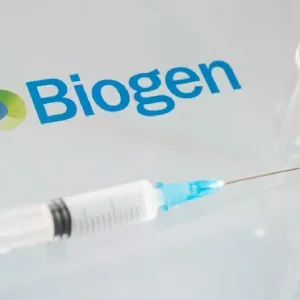
Ipsen has received the US Food and Drug Administration (FDA) approval for Iqirvo (elafibranor), in combination with ursodeoxycholic acid (UDCA), to treat primary biliary cholangitis (PBC).
Iqirvo is an oral, once-daily peroxisome proliferator-activated receptor (PPAR) agonist, discovered and developed by GENFIT, and licensed by Ipsen in 2021.
The FDA approved the drug under accelerated approval, based on its reduction of alkaline phosphatase (ALP), and continued approval is expected based on benefits in confirmatory trials.
Iqirvo is not recommended for people who have or develop decompensated cirrhosis, such as ascites, variceal bleeding, and hepatic encephalopathy.
Ipsen research and development head and executive vice president Christelle Huguet said: “For a significant number of people living with PBC, available treatments do not control the condition and may exacerbate symptoms of PBC. Left unmanaged, PBC can progress, leading to liver failure and in some cases, the need for a liver transplant.
“Iqirvo demonstrated statistically significant improvements in biochemical response compared to UDCA alone. Iqirvo is therefore a much-needed treatment option and the first new medicine for PBC in nearly a decade.”
The FDA granted accelerated approval for Iqirvo based on data from the Phase 3 ELATIVE trial.
The Phase 3 study showed that more patients achieved the composite primary endpoint of biochemical response when treated with Iqirvo plus UDCA, compared to placebo plus UDCA.
The study also met secondary endpoints of normalisation in ALP levels in only Iqirvo-treated patients. ALP is a biochemical marker used as a surrogate endpoint in PBC trials.
In the study, the most common adverse reactions with Iqirvo include weight gain, abdominal pain, diarrhoea, nausea, vomiting, myalgia, myopathy and rhabdomyolysis, and fractures.
Also, some study participants experienced, adverse effects on foetal and newborn development, drug-induced liver injury, hypersensitivity reactions, or biliary obstruction.
ELATIVE study primary investigator Kris Kowdley said: “Data from the pivotal Phase III ELATIVE clinical trial demonstrated that Iqirvo is an effective second-line treatment for patients with PBC with favourable benefit and risk data.
“The approval of Iqirvo will allow healthcare providers in the U.S. to address an unmet need with the potential to significantly reduce ALP levels for our patients with PBC.”
In 2019, Iqirvo was granted the US FDA Breakthrough Therapy Designation in adults with PBC who have an inadequate response to UDCA.
Currently, the drug is under regulatory review with the European Medicines Agency (EMA) and the UK Medicines and Healthcare Products Regulatory Agency (MHRA).






